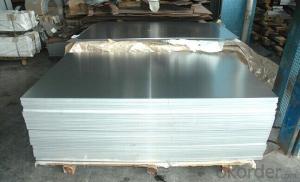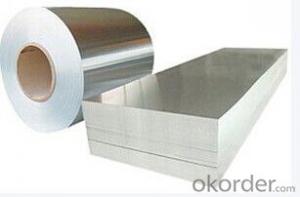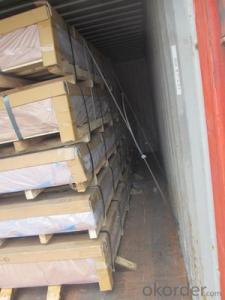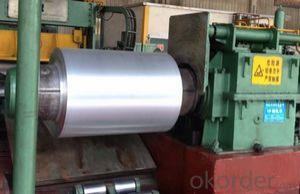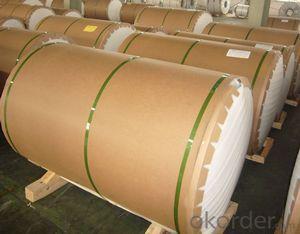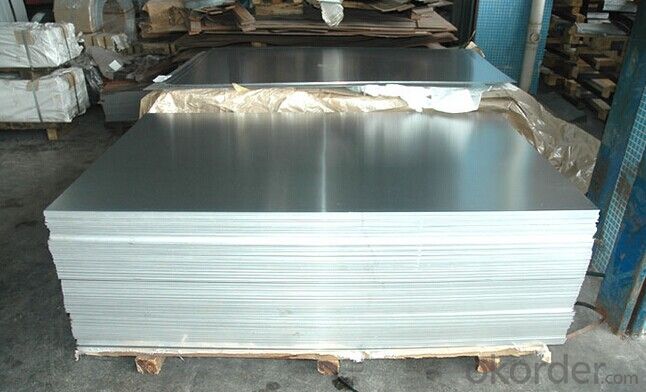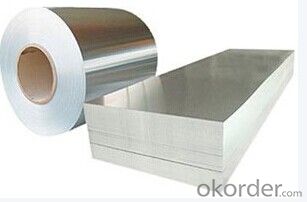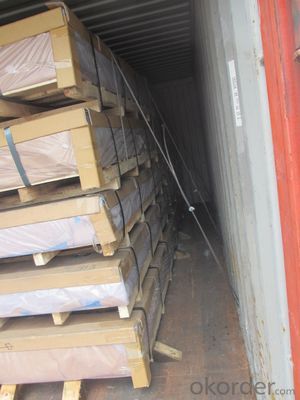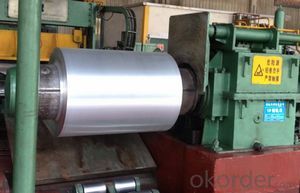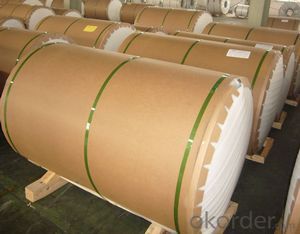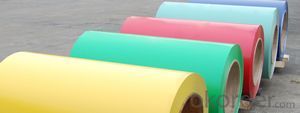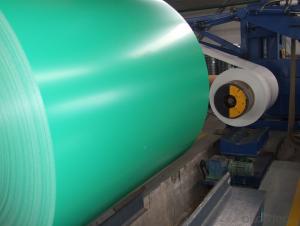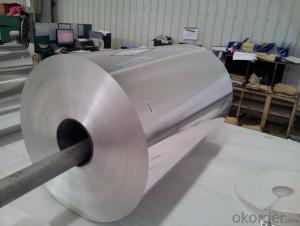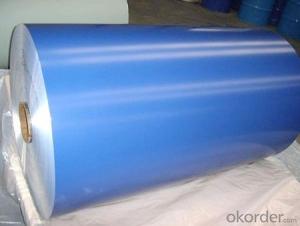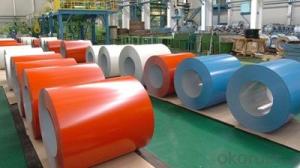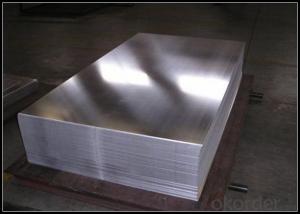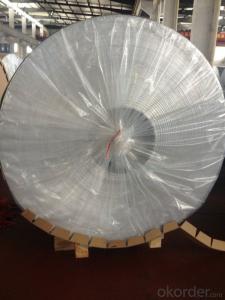Current Price of AA1100 Coated Aluminum Coil 5182
- Loading Port:
- China Main Port
- Payment Terms:
- TT OR LC
- Min Order Qty:
- -
- Supply Capability:
- -
OKorder Service Pledge
Quality Product, Order Online Tracking, Timely Delivery
OKorder Financial Service
Credit Rating, Credit Services, Credit Purchasing
You Might Also Like
supply Mill-finished / coated aluminum plate/sheet/ coil:
Alloy: AA1050,1060,1100,1200,2024,3003,3304,3005,3015,5052,5086,5754,5083,6061,7050,7475,8011, etc
Temper: O, H14/16/18/22/24/32/ H112/H321/T6,T851,T7451,T7351, etc
Thickness: 0.02mm—20mm
Width: 100mm—2000mm (Can be slitted)
Notice: PE coating / PVDF coating / Embossment can be done if required.
- Q: Are there any restrictions on the coil flatness of aluminum coils?
- Yes, there are restrictions on the coil flatness of aluminum coils. The industry standards specify acceptable tolerances for coil flatness to ensure the quality and usability of the aluminum coils. These restrictions help prevent any deformation or irregularities in the coils, ensuring they meet the required specifications for various applications.
- Q: This question seeks to understand the various types of aluminum coils that are commonly found in the market.
- <p>Aluminum coils available on the market today can be categorized based on their properties and applications. These include: 1. Plain Aluminum Coils: Used for general purposes like packaging and construction. 2. Embossed Aluminum Coils: Feature a textured surface, used in decorative applications. 3. Alloy Aluminum Coils: Made from a mixture of aluminum and other metals for enhanced strength or corrosion resistance. 4. Color Coated Aluminum Coils: Coated with paint or plastic for aesthetic or protective purposes. 5. Heat Treated Aluminum Coils: Processed to improve their mechanical properties. 6. Mirror Finish Aluminum Coils: Have a highly reflective, polished surface. 7. Pre-painted Aluminum Coils: Coated with a layer of paint before being used in construction or other applications. Each type serves specific industries and applications, with variations in thickness, width, and alloy composition.</p>
- Q: I was wondering if you could mold clay into a sphere then fill it with aluminum. Then put it over a fire and wait until the aluminum melts then put it in a freezer and it would come out as a sturdy, aluminum sphere. Thanks!
- Do not try this at home! Seriously, this is exactly the kind of process that is used for casting metals. However, you need to have very strong molds with no cracks in them. Also, aluminum presents special problems. Solid aluminum does not corrode the way iron does, because it very quickly forms a protective tough layer of aluminum oxide. But molten aluminum can catch fire, with devastating consequences.
- Q: What are the different tempers available for aluminum coils?
- The different tempers available for aluminum coils include annealed, full hard, half hard, and quarter hard.
- Q: How do aluminum coils compare to brass coils in terms of corrosion resistance?
- Aluminum coils generally offer better corrosion resistance compared to brass coils. This is primarily due to aluminum's natural oxide layer that forms on its surface, providing a protective barrier against corrosion. This oxide layer acts as a shield, preventing moisture and other corrosive elements from reaching the underlying metal. In contrast, brass coils are composed of a combination of copper and zinc, which are more susceptible to oxidation and corrosion. While brass coils may also develop a protective patina over time, it is not as effective as the oxide layer on aluminum coils. Therefore, aluminum coils are often preferred in applications where corrosion resistance is critical, such as in marine or coastal environments.
- Q: What are the common surface preparation methods for aluminum coils?
- To prepare aluminum coils for use, it is necessary to engage in common surface preparation methods such as cleaning, degreasing, and etching. In the surface preparation process, cleaning is typically the initial step. Its purpose is to eliminate any dirt, dust, or other impurities from the surface. Various techniques can be employed for cleaning, including the use of solvents, alkaline cleaners, or mechanical methods like brushing or scrubbing. Degreasing is another crucial aspect of aluminum coil preparation. Its objective is to eliminate any oils or greases that may be present on the surface. Degreasing can be accomplished by employing solvents or alkaline cleaners specifically designed for this purpose. Thorough removal of grease or oils is vital as they can interfere with subsequent treatments and coatings. Etching is commonly performed on aluminum coils to enhance adhesion for subsequent coatings or treatments. It involves creating a roughened surface. Etching can be carried out using chemical etchants or mechanical methods like sandblasting. The choice of etching technique depends on the specific application requirements and desired surface finish. Following surface preparation, additional treatments can be applied to aluminum coils, such as conversion coatings or anodizing, to enhance corrosion resistance or improve surface properties. These treatments safeguard the aluminum surface and provide a foundation for further finishes or coatings. In summary, proper surface preparation plays a critical role in achieving optimal adhesion, corrosion resistance, and overall performance of aluminum coils in diverse applications. It ensures that the surface is clean, free from contaminants, and appropriately prepared for subsequent treatments or coatings.
- Q: Are there any restrictions on the coil length of aluminum coils?
- Restrictions do exist regarding the length of aluminum coils. Typically, the maximum coil length is determined by the capabilities of the equipment utilized for coil production and handling. Several factors contribute to this determination, including the dimensions and capacity of coil winding machines, transportation and storage restrictions, and the coil's weight and stability. Moreover, longer coils may encounter increased handling and logistical challenges, such as heightened risk of damage during transportation or difficulties in uncoiling and processing. Consequently, it is crucial to take into account these restrictions and limitations when deciding on the suitable length for aluminum coils.
- Q: Can aluminum coils be used for electrical applications?
- Aluminum coils can indeed be utilized for electrical purposes. The electrical industry extensively employs aluminum due to its superb conductivity, lightweight nature, and resistance to corrosion. Various electrical applications, such as transformers, motors, generators, and inductors and solenoids, commonly employ aluminum coils. These coils possess advantages like high thermal conductivity and minimal eddy current losses, which make them highly efficient in the transmission and distribution of electrical power. Moreover, aluminum coils are more cost-effective when compared to copper coils, making them the preferred choice for numerous electrical applications. Nevertheless, it is worth noting that aluminum possesses lower electrical conductivity than copper. Therefore, adjustments in the coil design and dimensions may be necessary to ensure optimal performance.
- Q: This question asks about the current market demand for aluminum coil, which is a versatile material used in various industries.
- <p>The market demand for aluminum coil is significant and growing due to its wide range of applications across industries such as construction, automotive, aerospace, packaging, and electronics. Its lightweight, corrosion resistance, and recyclability make it a preferred material for many applications. The demand is influenced by economic growth, technological advancements, and sustainability initiatives. As countries focus on greener construction and manufacturing processes, the demand for aluminum coil is expected to increase further.</p>
- Q: Are aluminum coils suitable for high-gloss applications?
- High-gloss applications can benefit greatly from the use of aluminum coils. This metal possesses outstanding reflective qualities and, when treated and finished correctly, can achieve a remarkable level of shine and gloss. Its smooth surface and reflective nature work together to enhance the appearance of high-gloss finishes, making it an excellent choice for those seeking a polished and shiny look. Aside from its aesthetic advantages, aluminum also offers several practical benefits for high-gloss applications. It is lightweight, durable, and resistant to corrosion, making it a reliable and low-maintenance option. Moreover, aluminum coils are highly malleable, allowing them to be easily molded into different shapes and sizes, a crucial aspect when aiming for the desired high-gloss design. Moreover, aluminum coils can be coated with various finishes, such as anodized coatings or high-quality paint systems, to further enhance their durability and glossiness. These coatings provide an extra layer of protection against scratches, fading, and other forms of wear and tear, ensuring the long-lasting maintenance of the high-gloss appearance. To summarize, aluminum coils are a perfect choice for high-gloss applications due to their reflective properties, versatility, and durability. With the right treatment and finishing, aluminum can provide a stunning and enduring glossy finish, making it highly sought after in diverse industries, including automotive, architecture, and interior design.
Send your message to us
Current Price of AA1100 Coated Aluminum Coil 5182
- Loading Port:
- China Main Port
- Payment Terms:
- TT OR LC
- Min Order Qty:
- -
- Supply Capability:
- -
OKorder Service Pledge
Quality Product, Order Online Tracking, Timely Delivery
OKorder Financial Service
Credit Rating, Credit Services, Credit Purchasing
Similar products
Hot products
Hot Searches
Related keywords
